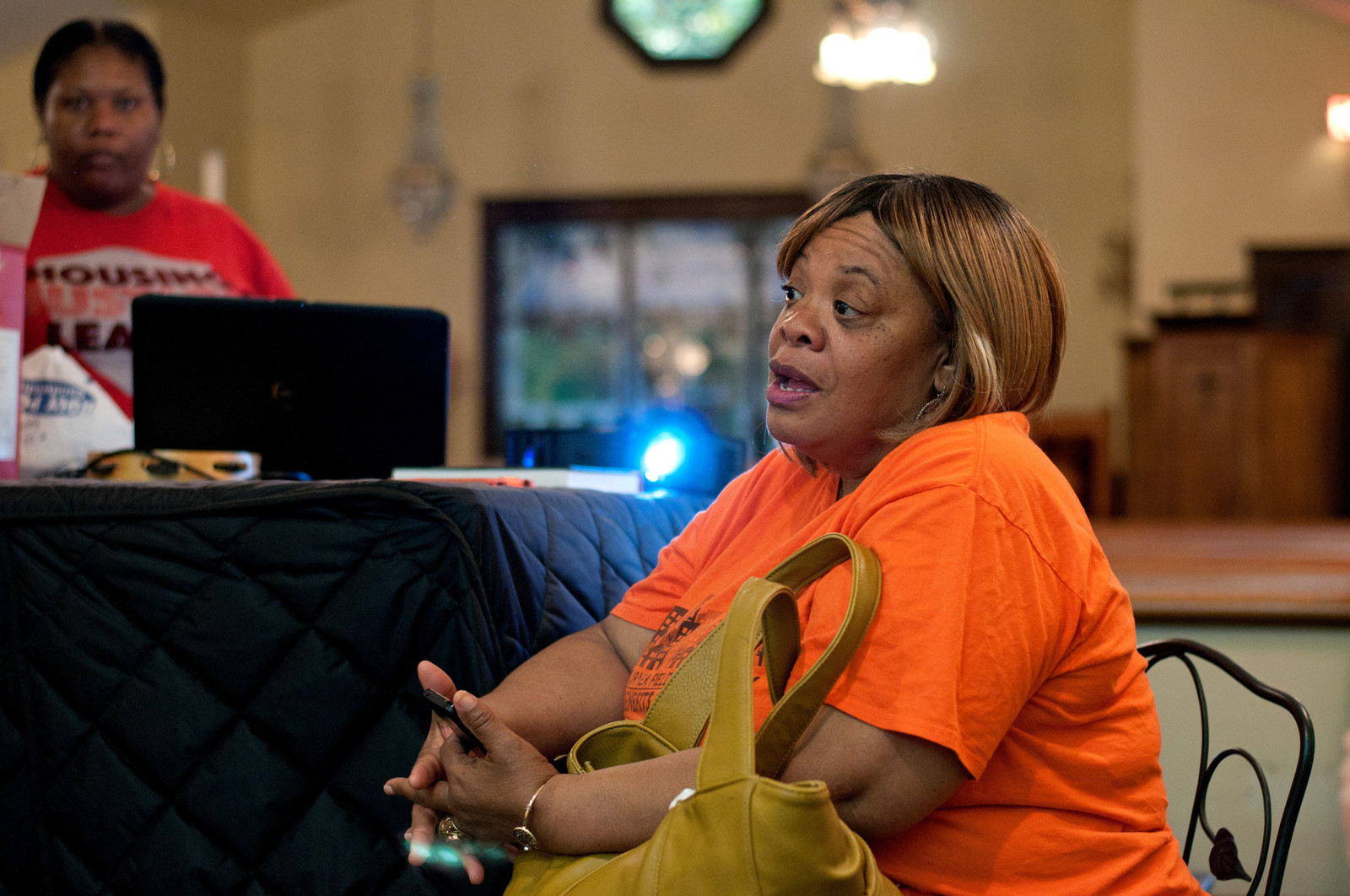
A 2018 training on tenants rights in Atlanta, coordinated by the Housing Justice League and AFSC. Bryan Vana / AFSC
For nearly a decade, the AFSC Atlanta Economic Justice Program has worked with renters and homeowners to self-organize and protect their right to remain in their homes—from defending against evictions to preserving affordable housing to opposing gentrification. But over the past two months, the COVID-19 pandemic has presented us with the biggest housing struggle of our lifetime, which has exacerbated the historic housing crisis we were already facing in Georgia and beyond.
Nearly one-third of renters in the U.S. didn’t pay any of their April rent during the first week of the month, according to a recent report. It's no surprise, considering that tens of millions of people have lost their jobs since the start of the pandemic. And we know that many more won’t be able to make rent in the months ahead, with projections forecasting that several million people in Georgia alone will require rental assistance to avoid eviction.
Even as we’re working remotely, AFSC is continuing to work closely with partners and community members to demand housing protections for low-income Georgians. In mid-March, our advocacy helped lead to a two-month moratorium on evictions in the Atlanta metro area. While winning a pause on evictions was critical, it simply bought us a little more time. Much more is needed to help struggling residents in the long term—so they can afford to keep their homes well beyond this pandemic.
That’s why we partnered with the Housing Justice League and over a dozen other organizations to launch the statewide COVID-19 Housing Emergency hotline (404-946-9953) to directly assist those suffering a housing emergency—and connect them with organizing and advocacy efforts. Since the hotline started in March, we have received more than 715 calls. We’ve also trained over 100 volunteers to answer the hotline remotely and respond to callers.
Our hotline helps callers through a process to identify their individual needs and how to meet them. We encourage residents to open up a dialogue with their landlord or mortgage holder and assume that person wants to do the right thing. One of the first steps we recommend is sending a letter to their landlord explaining their situation, based on templates we provide. The letter is also signed by almost 20 local organizations, which conveys to landlords that community eyes are focused on their response.
We have already had some success in helping tenants and landlords reach some creative solutions. Soon after we launched the hotline, three roommates contacted us. All of them had lost their jobs and were unable to pay the rent until they could work again. After using our letter, they came to an agreement with their landlord. The landlord would provide paint and equipment, and the out-of-work tenants would paint the house in exchange for not having to pay rent until they returned to work. Everyone benefited. No one was evicted.
In addition to assisting tenants, our hotline is helping landlords and mortgage holders understand and deal with the new mathematical reality we’re facing. Many people can't pay right now—far too many to evict—and it’s in the best interest of all involved to find creative ways to help people stay in their homes. We're all in this together.
Not every individual situation can be resolved as simply. Landlords may choose to do the absolute wrong thing and illegally evict people in a time of pandemic. Our partner, the Housing Justice League, can help defend them from eviction. We can also mobilize volunteers and other community activists to publicly pressure landlords through phone calls and emails.
Through our hotline, we’re not only supporting people facing a housing emergency right now—we’re documenting their stories, calling out landlords who are risking the safety of our community, and strengthening our organizing and advocacy efforts to make long-term changes to a system where injustices have become magnified in this crisis.
None of this would be possible without the support of volunteers and donors. We’re continuing to train more people to answer the hotline, and we expect calls to increase significantly in the weeks ahead.
How can you help?
- Sign up as a hotline volunteer: We welcome volunteers from outside of Georgia, and we provide comprehensive training and support.
- Make a gift: Donate today to support our response and assist people who face losing their homes.
With your support, we can continue to help people keep their homes, protect our right to housing, and build toward a future where we all have the resources we need to be healthy and thrive.